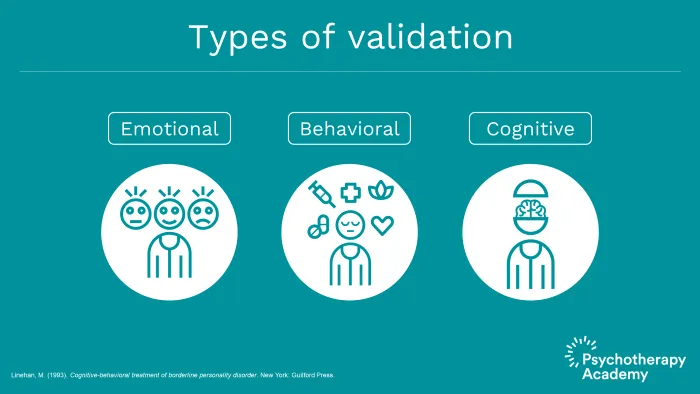How validation can lessen the burden of mental health issues

In a previous blog post, we discussed mental health concerns as somewhat of an “invisible issue”. Fortunately, people are beginning to talk more about mental health, and treatment strategies for preventing and managing mental health symptoms are becoming more accepted. The shift that has happened in the last couple of years is in large part due to the Covid-19 pandemic. Many of us were thrown for a loop as our world dramatically shifted. Faced with anxiety for the unknown, stress from losing jobs or having to help kids learn to adapt to online school, many of our previous coping skills for dealing with daily life were disrupted. The emotional dis-regulation of quarantine created mental health struggles for many people who previously had never experienced them.
For many, experiencing mental health concerns firsthand created an increase in compassion and understanding for how distressing it can be to experience a mental health issue. And yet, others may still hold untrue stigmas towards mental health problems; stigmas that can lead to those who experience mental health struggles feeling that their experience is discredited by family members, friends, and loved ones who they look to as a source of support. Once we understand the importance of mental health, we are in a position to help those around us who may be struggling. Not everyone is open about their mental health challenges, so it is important that we as allies demonstrate that we are a safe person. We can offer love and support to those around us who may be suffering, whether internally or openly. One simple way we can do this is by validating the experiences of those around us.
Emotional validation is essential to human social and psychological development. We see this demonstrated in young children. When children become frightened they look to their caregiver for a response to their distress. Caregivers who offer comfort help children learn to process their emotions, while those who ignore them teach the children to suppress and ignore their emotional feelings. Having our emotions validated leads us to feel loved and accepted by others, and helps create closeness in relationships. But having our feelings disregarded can cause us to pull away from others.
Opening up can be a vulnerable and terrifying experience for a lot of people. Imagine how it might feel for someone to muster up the courage to share what they are experiencing with depression or anxiety, only to be told that their suffering is not real. It can be crushing, and discourage them from opening up to anyone else. For those experiencing mental health issues, suppressing or hiding their feelings can exacerbate their symptoms and put them at increased risk. But by validating their experience, even if we do not understand it, we can help lift a part of the burden our loved ones are holding. This does not mean that you have to take on the emotional responsibility of someone else’s mental health, and if you feel someone’s needs are beyond what you can offer, advise them to seek professional help through Day One’s Charitable Mental Health Program


